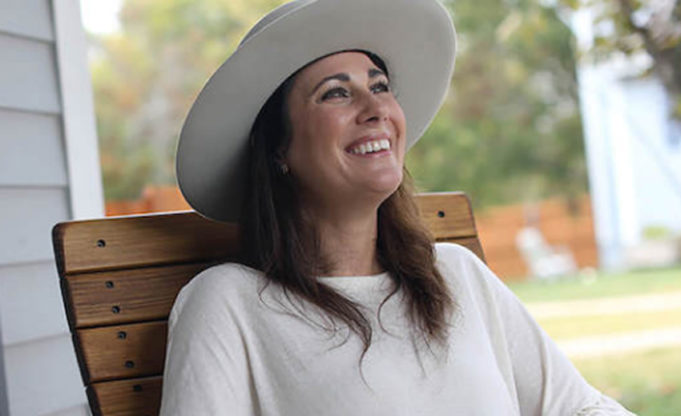There’s something stirring in the heart of Texas, and it’s not just the wildflowers blooming off the highway. Behind doors you might pass without noticing, women are quietly doing some of the hardest work of their lives—breaking free from addiction and rebuilding everything from the ground up. It’s not a story we hear enough. Maybe because it’s not flashy. Maybe because the women living it don’t always feel like talking. But they’re out there, and their numbers are growing. And as Texas continues to face rising drug use, especially with the fentanyl crisis creeping into suburbs and small towns, more women are stepping forward and asking for something different. Something that feels safer. Something that understands their stories. That something is showing up in women-centered drug rehab.
Why Women-Only Rehab Centers Are Catching Fire In Texas
There’s a big difference between co-ed recovery centers and the ones built entirely for women. And for a lot of Texans who’ve been through both, that difference is night and day. In mixed-gender spaces, some women feel pressure to perform or stay quiet about what they’ve really been through. It’s hard to talk about trauma when you’re sitting in a room with strangers who haven’t lived your life—and sometimes don’t want to hear it.
That’s where gender-specific centers come in. These are spaces where every bed, every therapist, every program is there for women and women only. Whether it’s moms trying to get their kids back, college students struggling under the weight of anxiety and Adderall, or women in their 40s who never thought they’d end up here, these places speak their language. In Texas, the demand for women-only centers is growing, especially outside the big cities. You’ll find them in places like Central Texas, the Hill Country, and even further out in rural counties. Some of them have waiting lists now. Because once word gets out that there’s a place where you can fall apart without judgment and start over without pretending, people come.
Not All Recovery Looks The Same—And That’s A Good Thing
Drug use isn’t always about parties or chaos. Sometimes it’s quiet. Sometimes it’s a glass of wine every night that turns into three. Sometimes it’s a bottle of pills that starts with a bad back or a C-section. For Texas women, the pressure to keep things together while falling apart on the inside is its own kind of hell. That’s why rehab can’t be one-size-fits-all. And it’s why centers are finally starting to look at the full picture.
Well known for offering programs that treat addiction and trauma side by side, The Fullbrook Center doesn’t just detox someone and send them on their way. They take time to help women unpack years of pain, self-blame, and silence. Staff members are often women who’ve walked the same road, and that makes a difference. It’s not about tough love or boot camp. It’s about steady, honest support. And it’s working. Stories are coming out from women who’ve not only gotten clean, but found careers, repaired families, and finally figured out how to live without always needing to numb something.
There’s also more talk now about the health risks of vaping, especially among younger women who think it’s a safer option. Many treatment centers are sounding the alarm that what started as a coping mechanism is becoming its own addiction. And unlike other substances, vaping often flies under the radar, which means it can take longer for women to recognize they’ve lost control of it. Facilities that truly understand women’s experiences are treating it seriously—and helping them walk away from it without shame.
Texas Isn’t Waiting For Change—It’s Building It
When you look at how women in Texas are dealing with addiction, it’s clear they’re not just sitting back hoping something gets better. They’re driving hours to reach the right rehab. They’re leaving bad relationships. They’re calling centers with trembling hands. The opioid crisis didn’t hit Texas in one clean wave—it seeped in slowly, and it’s still here. But so is the response. Community-based outreach programs and local churches are helping more women get into care. Some counties are partnering with women’s shelters to provide referrals and rides. It’s not perfect, but it’s moving.
There’s also been a shift in what treatment looks like. It’s not just about getting clean anymore. It’s about healing in every direction. For a lot of women, that includes therapy, support groups, art and movement classes, parenting help, even financial counseling. It’s all connected. And Texas, with all its grit and stubbornness, is uniquely positioned to lead the way in showing that you don’t have to choose between recovery and real life. You can build them both at the same time.
It’s Not Too Late To Start Over
The road to rehab isn’t paved with easy choices. For a lot of women, it’s the scariest thing they’ve ever done. But more and more, they’re choosing it. Not because they hit rock bottom, but because they want something better before they get there. If you’re in Texas and you’re struggling, you’re not the only one. And you’re not out of options. Whether you’re in Houston, Lubbock, or somewhere in between, help exists—and more often than not, it looks a lot like another woman offering you a seat next to her, saying, “You’re safe now.”
Finding Strength, One Step At A Time
Texas women aren’t waiting around for a hero. They’re becoming their own. Whether it starts with a single phone call or a quiet ride to rehab, what matters is that they’re showing up. Not just to survive, but to actually live. And in a state known for its toughness, that kind of quiet, gritty strength might be the most powerful thing of all.












